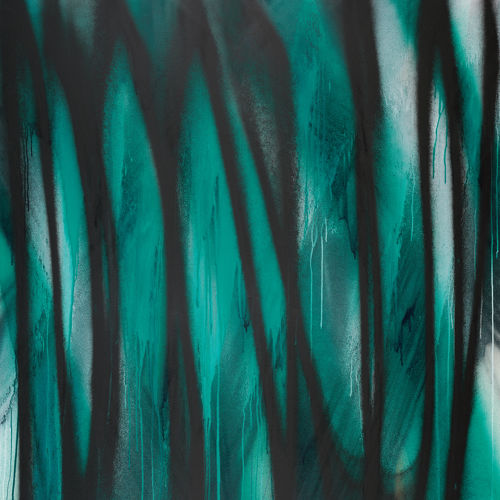New York’s "Class of 2008" producers – Levon Vincent, Jus-Ed, Fred P., DJ Qu, Joey Anderson, Nicuri and Anthony Parasole, have managed to spread their nets quite far since their humble beginnings, nearly to the point of ubiquity in underground house and techno. Deep house has been profoundly affected by their presence: they can in many ways be credited with leading a revival of certain aspects of classic deep house, modernising it while remaining close to its roots. Their individual interpretations vary, but, after Levon Vincent, it is most likely Fred Peterkin who has established the most iconic sound, a psychologically intense, layered, cosmic house style that has earned comparisons to Larry Heard.
More than the rest, Peterkin has been one to found numerous side projects and new aliases. From the beginning there was Black Jazz Consortium, the banner under which he has so far released most of his albums (3 out of the 5 total), but now silent for two years and always poorly distinguished from the music released under his own name. In its absence have arisen two harder and more dancefloor-focused aliases, the dubbed-out techno of Anomaly and FP197, a similarly toughened interpretation of his house sound with a recent EP on his Boards sublabel. Throughout all of this, he has remained very recognisable, the melancholic chords and thick atmospheres of his productions a calling card and the unmistakable emotional intensity a signature he has established over time, mostly as modern house music has drifted more towards stasis and texture. Announced as the first of three albums under new aliases for Mule Musiq, 5 debuts his FP-Oner project and continues the diversification of his sound.
If Anomaly was Peterkin stripping back his productions and going into techno territory, FP-Oner is going in the opposite direction; thickening his sound into one more lush and musical, a tendency that has been apparent in his Fred P. material for a few years. As his first album not containing or composed of separate singles, 5 is the least tethered to the dancefloor, and especially the opening and closing sections float past in ethereal waves underlain by a house rhythm section but placed much further back than usual. The middle section is peppered with harder tracks, but again there are unusual accents – whether it’s the slow swallowing of the drum track in ‘The Art Of Regeneration’, or the percussion on both ‘The Realm Of Possibility’ and ‘Platinum Soul’.
As is characteristic, the album is deliberately paced and conventionally beautiful, the slowly undulating pads and careful arrangements nearly immaculate in their execution, and Peterkin has grown as a producer with this as his most sophisticated work yet. But it’s also more extroverted in many ways, the keyboard melodies and intensifying drum machines of the extended effort ‘The Law Of Correspondence’ explicitly taking the listener to places his previous work only suggested and brimming with confidence in doing so, a fact made clear in the surges of bass that power the track forward in steady waves. Although still understated, there is enough going on to easily fill all 11 minutes, and even tougher tracks like ‘Infinite Love’, whose sampled vocals and hard, jacking drum track could easily carry the momentum, are helped by this attention to detail and fuller approach, here seen in the interplay between the drums and the growling bass or the quick rhythm change-ups and drop outs throughout the track.
Compared to his work of even two years ago, like Black Jazz Consortium’s Codes And Metaphors LP, with its various guest appearances and vocal presence, there’s real growth visible, something that can be easily seen in comparing ‘The Otherness Dub’, a piece buried in the midsection that summarises Peterkin’s early work quite easily, with the other fare on 5. Previous material by the producer had always been effortlessly deep but could sometimes be called conservative, and it is this aspect he is escaping from here. The jazziness of ‘Manifestations Taking Place’, including its languorous hand drums, or looseness to the keyboard parts and some of the percussion lines throughout the album give it a hand-played, funky sound that’s conspicuously absent from much contemporary house. He also amply demonstrates a much greater range here than before, moving from deep house in his classic style to harder-hitting percussive tracks and into ambient and extremely subtle, highly musical tracks with ease and fluidity while always sounding like himself.
Both as a DJ and as a producer, Fred P. has maintained a consistency and excellence that often did not call attention to itself but has on occasion been too inward-looking for its own good. FP-Oner isn’t the first evidence of a change in that approach, but it is the clearest hint yet, a wide-ranging and self-consciously diverse album that successfully stretches his sound in many directions at once while keeping his identity distinct. With two more albums of new projects soon to come, there are more changes waiting in the wings, but as his strongest full length in recent memory, 5 is also one of his most rewarding.
<div class="fb-comments" data-href="http://thequietus.com/articles/18285-fp-oner-5-review” data-width="550">


